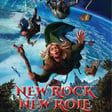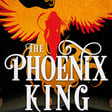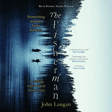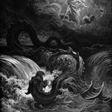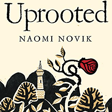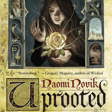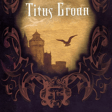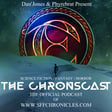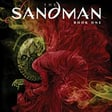
An American Werewolf In London with Richard Sheppard
For this episode we're joined by Richard Sheppard, host of The Constant Reader Podcast, which takes a deep dive into all things Stephen King, from his numerous novels to the equally numerous movie and TV adaptations of his work.
Richard talks with us about John Landis's seminal 1981 film An American Werewolf in London, a horror comedy that is funny and scary in equal measure, and remains the high watermark for werewolf movies everywhere, and especially so for a curious period in the early 1980s when werewolf fever seems to have had America in its lycanthropic claw. We talk werewolves in general, taking in themes of duality, Jewishness, sexuality, the Beauty and the Beast myth, and of course, the literally transformative advances made in movie make-up and special effects technology in the late 1970s and early 1980s.
We also take the time to talk about The Constant Reader Podcast, about podcasting more generally, and the possibilities of making your voice heard using non-conventional means.
Elsewhere, The Judge delivers her verdict on defamation, we'll hear Third Player, our very own Christopher's winning entry from the January 300-word challenge, and A Better Yesterday, Reiver33's winning entry from the February 75-word challenge, and a regular evening down in Slish Wood takes a turn for the worse when a full Moon appears from behind the clouds...
Further Reading and Links
The Constant Reader Podcast
Join SFF Chronicles for free
Index
[00:00] Richard Sheppard Interview Part 1
[47:20] Voicemail 1
[48:23] The Judge's Corner
[1:02:24] Voicemail 2
[1:03:08] Writing Challenge Winners
[1:06:18] Voicemail 3
[1:07:08] Richard Sheppard Interview Part 2
Join us next month when we talk to author Stephen Cox about swords and sorcery in Fritz Leiber's genre classic Swords And Deviltry, featuring two of fantasy's greatest heroes, Fafhrd and the Gray Mouser, and Stephen's latest novel Our Child Of Two Worlds.



